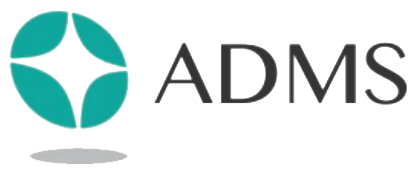In the ever-evolving landscape of the modern workplace, soft skills have emerged as indispensable assets that complement technical expertise and drive success. As a recruitment agency, understanding the profound impact of soft skills on organizational effectiveness is key to identifying and nurturing top talent. Here are seven compelling reasons why soft skills are crucial in today’s dynamic work environment:
7 Reasons Why Soft Skills Are Essential in the Workplace
- Enhancing Communication
- Facilitating Leadership and Management
- Promoting Teamwork and Collaboration
- Driving Customer Satisfaction
- Boosting Creativity and Innovation
- Enhancing Emotional Intelligence
- Future-Proofing Careers
1. Enhancing Communication:
Soft skills such as effective communication, active listening, and empathy are foundational for fostering strong relationships and collaboration within teams. Clear and empathetic communication ensures that ideas are conveyed accurately, conflicts are resolved amicably, and feedback is constructive, leading to a more harmonious and productive work environment.
2. Facilitating Leadership and Management:
Leadership is not just about authority but also about influence, vision, and emotional intelligence. Soft skills like leadership, decision-making, and conflict resolution empower managers to inspire their teams, navigate challenges adeptly, and foster a culture of trust, respect, and innovation.
3. Promoting Teamwork and Collaboration:
In today’s interconnected world, success often hinges on the ability to work collaboratively across diverse teams and geographies. Soft skills such as teamwork, adaptability, and cultural competence enable individuals to collaborate effectively, leverage collective strengths, and drive synergy towards shared goals.
4. Driving Customer Satisfaction:
Soft skills play a pivotal role in customer-facing roles where building rapport, understanding needs, and delivering exceptional service are paramount. Skills like empathy, problem-solving, and effective communication empower employees to connect with customers on a deeper level, anticipate their requirements, and provide personalized solutions, thereby enhancing satisfaction and loyalty.
5. Boosting Creativity and Innovation:
Creativity thrives in environments that encourage open-mindedness, curiosity, and risk-taking. Soft skills such as creativity, critical thinking, and adaptability stimulate innovation by encouraging employees to question norms, explore new ideas, embrace change, and approach challenges from multiple perspectives, driving continuous improvement and competitive advantage.
6. Enhancing Emotional Intelligence:
Emotional intelligence, encompassing self-awareness, self-regulation, social awareness, and relationship management, is a cornerstone of effective leadership and teamwork. Soft skills related to emotional intelligence enable individuals to manage stress, navigate conflicts constructively, inspire trust, and foster a positive work culture grounded in empathy, resilience, and mutual respect.
7. Future-Proofing Careers:
In a rapidly evolving job market shaped by technological advancements and automation, soft skills are becoming increasingly valued as drivers of long-term career success. While technical skills are essential, it’s the combination of technical expertise and strong soft skills that equips individuals to adapt, upskill, and thrive in a dynamic and competitive professional landscape.
Conclusion:
Soft skills are not just nice-to-have attributes; they are fundamental competencies that underpin organizational success, employee satisfaction, and growth. As a recruitment agency, recognizing and nurturing soft skills in candidates can make a significant difference in placing talent that not only meets job requirements but also adds value to the workplace culture, fosters innovation, and drives sustainable success.
Are you ready to harness the power of soft skills in your organization? Partner with us to identify and develop talent that excels not just in technical prowess but also in essential soft skills that drive excellence and resilience in today’s workplace.

